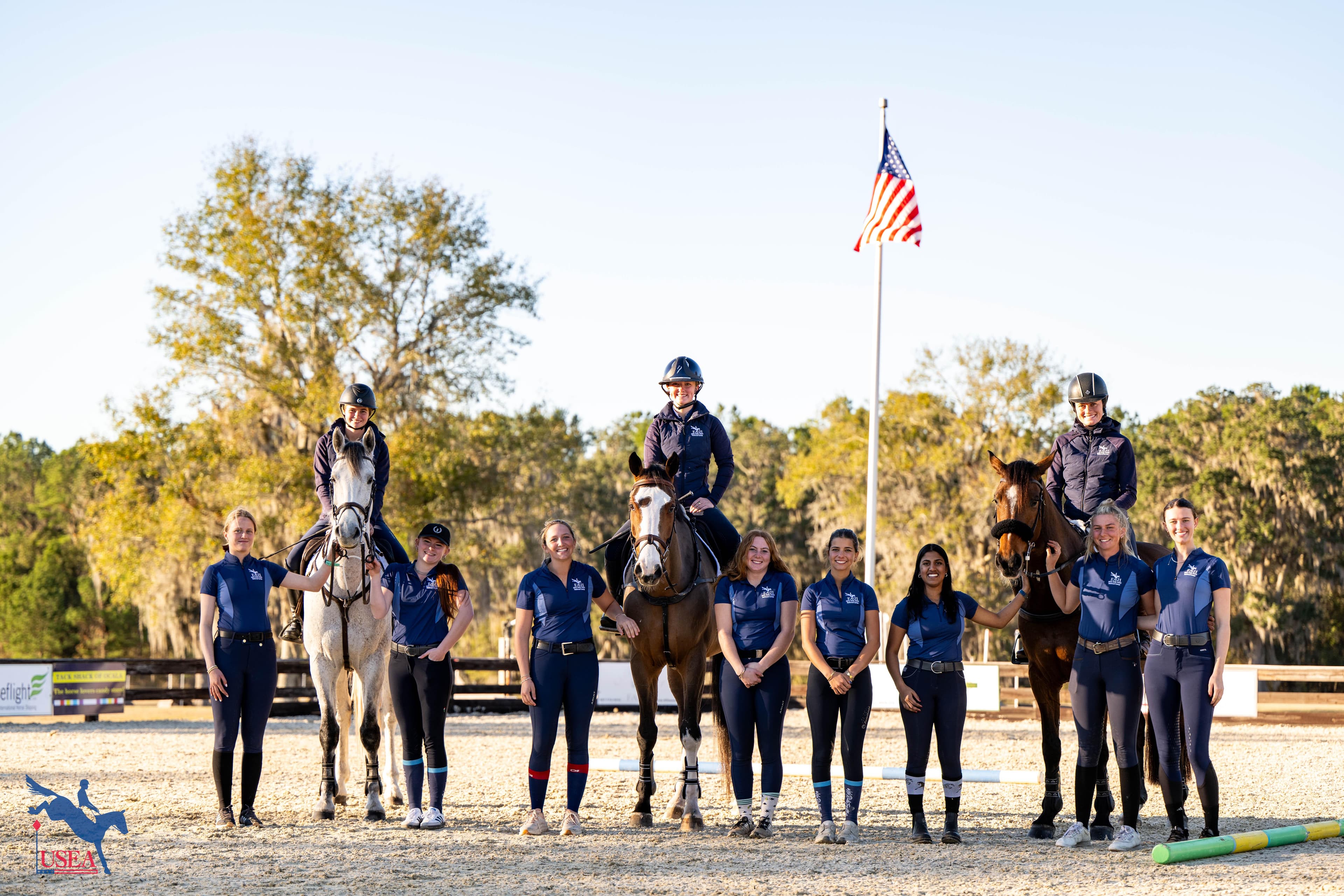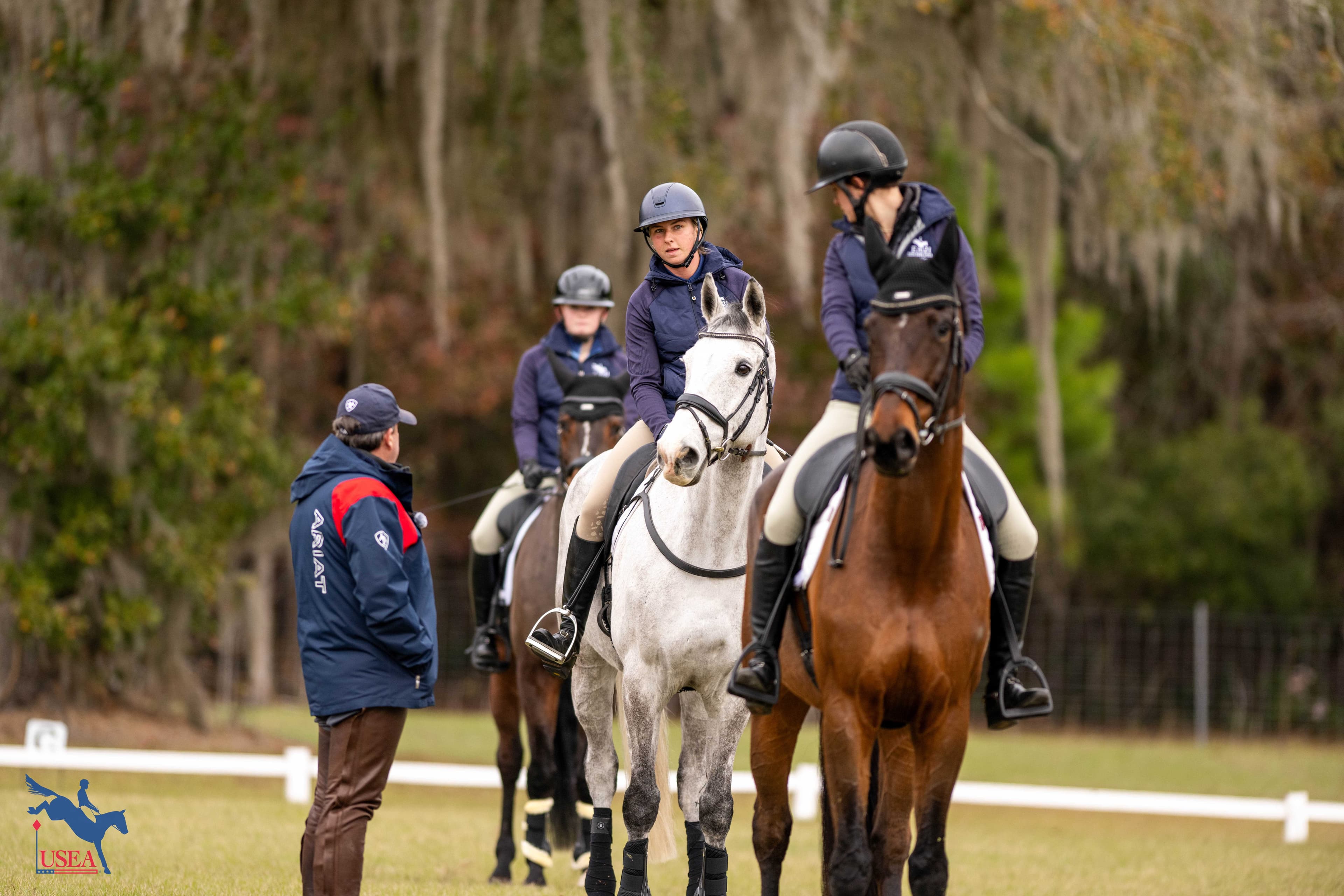Does This Sound Like You? Maybe You Will Compete Modified Some Day, Too
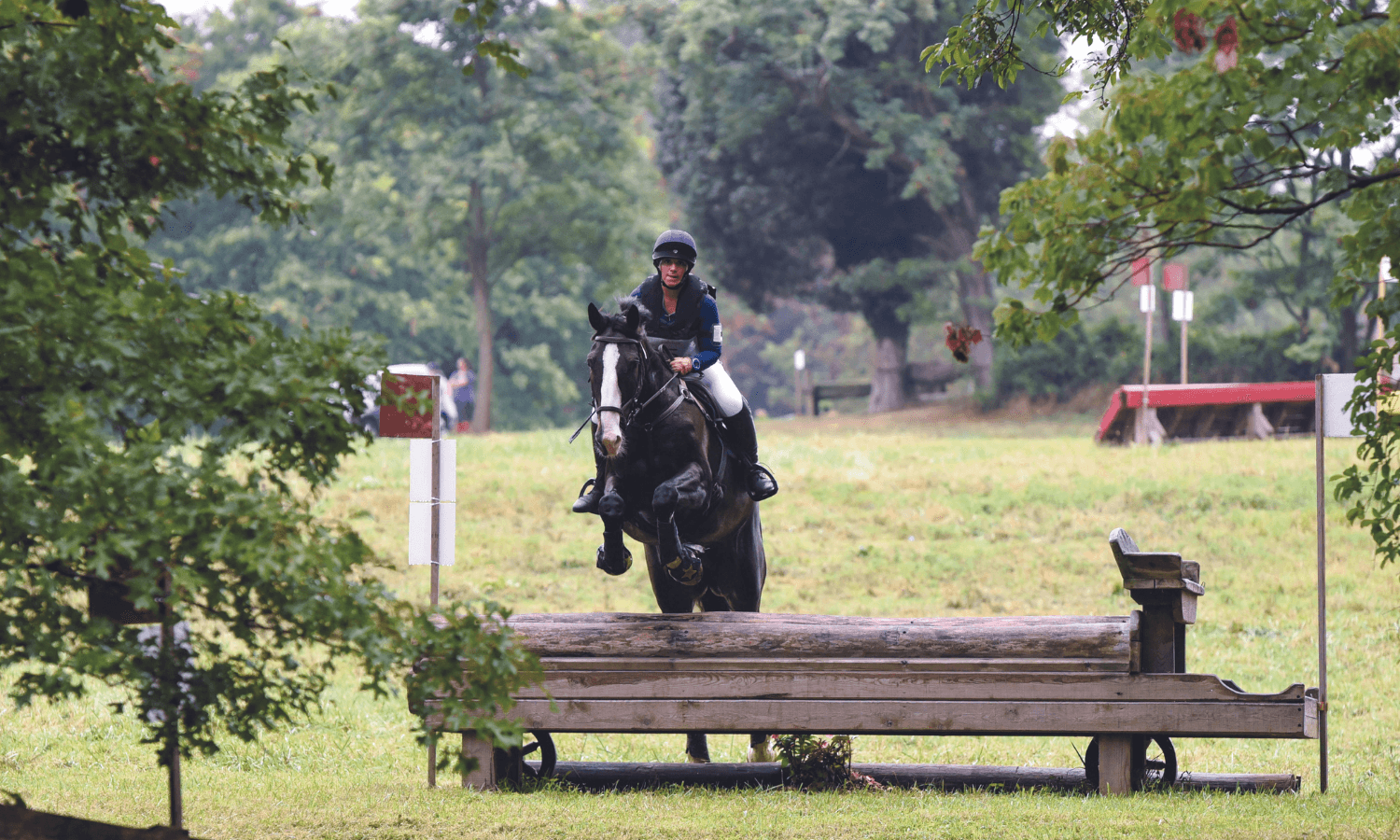
This article originally appeared in 2022 Issue 1 of Eventing USA magazine.
During the break between dressage and jumping, I checked my scores online. As I looked over the names of competitors in my Modified division at Kent Horse Trials in June 2021 many were familiar to me.
I’d seen their faces before at area clinics and shows, as I brought along my OTTB from his first cross-rails to . . . well . . . this. I’d seen their horses alongside me in warmups as we struggled to get across ditches at Novice, lower our dressage scores below 40 at Training, and see how far we could take our game horses, with limited budgets, time, and energy.
What is “Modified” all about? You might wonder since it’s the newest USEA level. The USEA Board of Governors approved the new Modified level at the end of 2016, but it took several years for a critical mass of competitions to build new jumps and offer the level. In April 2020 USEF made Modified a recognized level and the qualifier for a national one-star. The first Modified Championships offered at the USEA American Eventing Championships was in 2021.
With jumps at a maximum of 3’5”, the Modified level is bigger, longer, and more technical than Training, but not as much as Preliminary. USEA CEO Rob Burk stated, “When the Modified level was first proposed in the U.S., it was primarily intended to bridge the transition for horses and riders into the Preliminary level.”
I set out to learn more about these fellow competitors I’d run into for so many years. Where did their horses come from? What did they like about the Modified Level? How did they train for competitions and what were their goals? What I learned might surprise you.
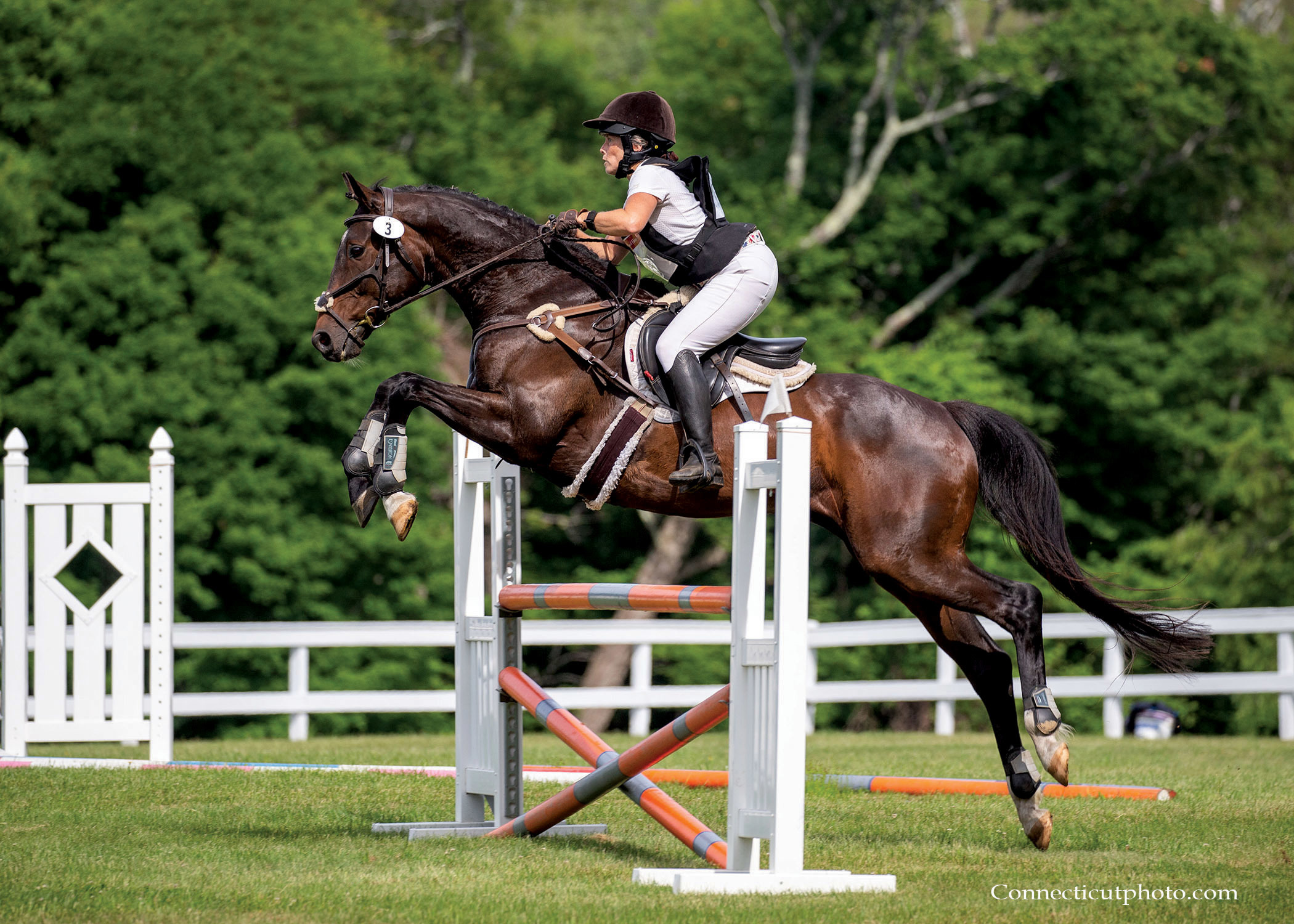
With the Right Training, a Gift Horse Can Do Modified
“I was given my horse for free, as an unbroken yearling,” said Sarah Tompkins of Rhinebeck N.Y., who has worked as a professional groom and barn manager. “He was a race-bred Thoroughbred, but was born with a terrible swayback and his owners were on the verge of putting him down. No one ever thought he’d amount to anything. I’ve done all his training while working full time. Now he’s 17 and doing Modified! He’s surpassed all my expectations!”
“I got my horse for zero dollars as an unbroken 9-year old,” said Brinn Dimler of Stone Ridge, N.Y. “He’s a Shire-Thoroughbred cross. It took him a while to figure out where his legs are, and he has a very unconventional jumping style, but he eats up the cross country courses! His biggest weakness has always been stadium since he knows the sticks come down.”
“That’s the inexpensive little horse from Long Island” people used to call Adult Amateur Kristen Vardy’s Thoroughbred/Hanoverian mare, who she bought from a local sales barn after she sat for months with no one else claiming her. “The vet had to figure out her age from her teeth, she couldn’t canter down the long side of the ring, and wasn’t a natural jumper. She’d never been ridden outside the ring! When we started beating everyone, they stopped calling her that. And here we are at Modified!”
My own horse was a “low four-figures” 7-year-old OTTB with about three months retraining off the track when I got him. That first year, I took him Beginner Novice and he absolutely refused to go near, much less through, the big water complex at Essex Horse Trials. He went sideways as often as he went forward. It took another year to finally finish on our dressage score at Novice. In our third year together, we moved up to Training, which was new for both of us, and seemed like a slightly bigger, faster Novice. But this year, as Dimler pointed out, “Modified really helps you understand your weaknesses. Is it fitness? Is it speed?” For us it was adjustability and my jump position . . . we’ll look forward to another season at Modified to make sure these gaps are filled!
Making Modified Work
“I do a lot of flatwork and fitness work,” said Tompkins. “Some stadium rounds keep us sharp, and endless continuing work on the dressage helps be ready for the technical questions we’ll see on cross-country.”
“I had to learn the new movements – leg yield and the lengthenings – so I did a lot of flatwork,” said Dimler. “When I do get the opportunity to school cross-country, I work on making the bigger jumps comfortable.” Vardy concurred on the importance of lateral work, to strengthen the horse and make her more adjustable for the more technical courses.
At home, I don’t even have a riding ring. I school dressage on a flat area in my pasture marked with cement block letters and jump around a homemade set of standards. A few times each year I have the luxury of traveling the three to four hours it takes for me to get to the closest cross-country course, but that hasn’t held us back from reaching Modified.
You Can Do a CCI! Or a Classic Three-Day!
“I’d love to do a CCI1*!” said Dimler, a thought seconded by Tompkins. “My goal was originally to do the CCI1* at Virginia Horse Trials in 2021,” said Tompkins. “It’s too expensive for me this year because I’d have to get my horse an FEI Passport, but I’d love to do the AEC at Modified!”
In 2021, the USEA Classic Series also added the Modified level Three-day, another option for riders seeking a challenging, fun, and educational experience at the level. “When I completed the Waredaca Training Three-Day, I knew I was ready for Modified,” said Vardy, “Because most of the course had been part of their Modified course.”
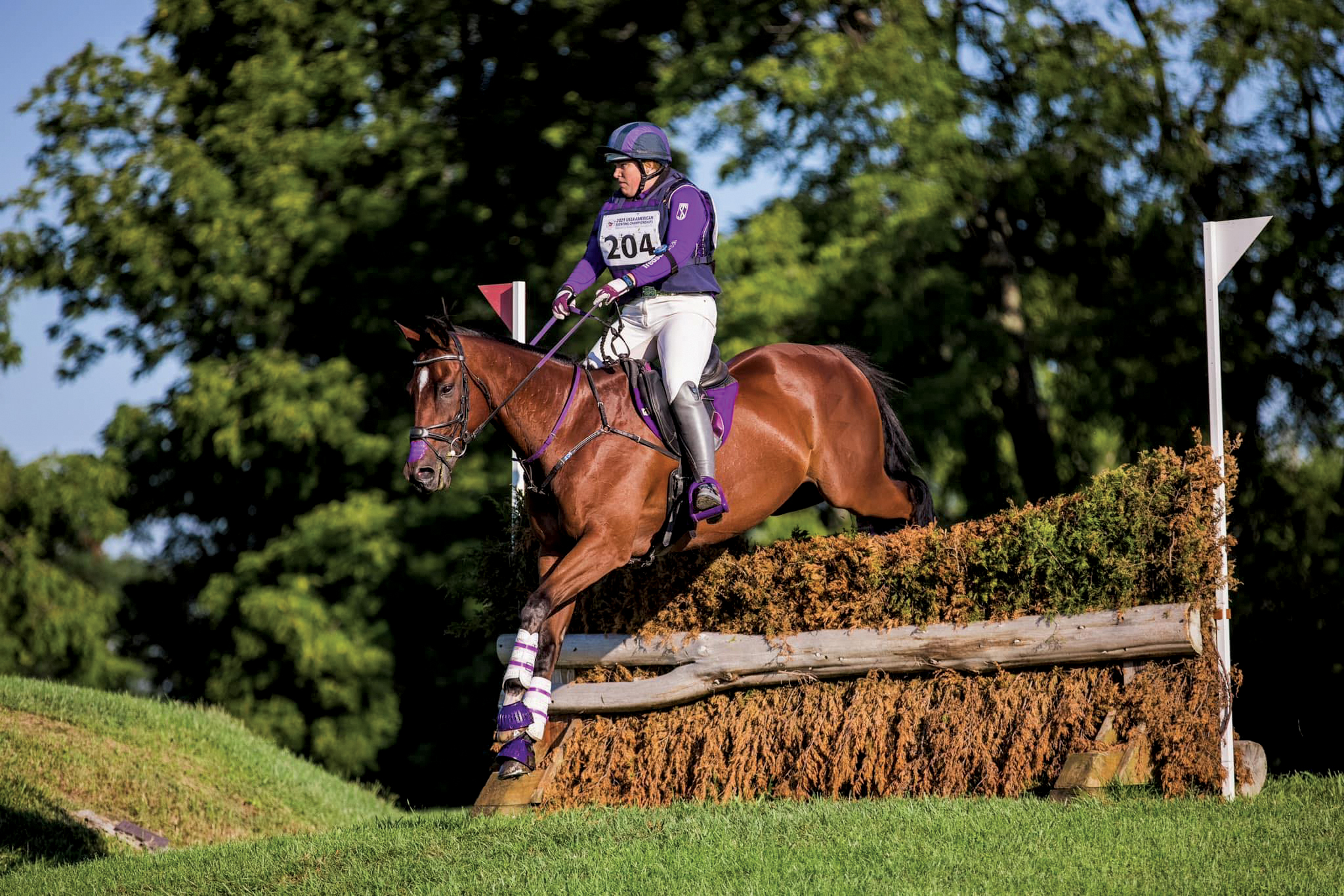
It’s Not as Hard To Run a Modified As Organizers Might Think
“We need more of them!” said Tompkins. “At the competitions I’ve run, the course designers just looped the Modified in and out of the Training and Preliminary courses, and it worked fine. Especially with safety at the higher levels being ever-more important, there’s definitely a need for Modified!”
Eliza Quigley, a 15-year old Junior rider also in our Modified division that day at Kent Horse Trials, agreed. “The most challenging thing about competing Modified is that you aren’t always competing at the same level, due to lack of events running the level. For example, after I completed my first Modified at Kent, I had to move down to Modified/Training at CourseBrook, and after that, I had to move down into Training at GMHA because that’s all they offered.“
Ronan Moloney, one of the organizers at Kent Horse Trials and the cross-country course designer, said “We offered it as a service to Area I, to help improve the quality of competition. Our goal was to provide a track at the maximum Modified height that was not overly technical. Riders could test their skills and see if they were ready for a move up to Preliminary this season, or perhaps go back to the drawing board.” Moloney noted that it took about two years of offering Modified for the word to spread, and get enough entries to fill the division and cover the costs of the 10 new jumps they had to order. “There were quite a few additional expenses, new jumps we needed, a longer track we had to create, and officials with higher qualifications we needed to have on-site,” he added.
Kent Horse Trials Competition Manager Lynn Guelzow felt it was important to give Area I riders something new and different that added value. “We are blessed with great natural terrain, including historic fields and hedgerows, real stone walls, a mountainside, and an actual stream crossing. Riders have so much fun galloping across our big spaces and Modified just brings this to the next level.”
You Might or Might Not Use it as a Stepping Stone to Preliminary
“I don’t know if my horse will ever reach Preliminary, and I don’t really care. He’s taken me this far, when they were ready to put him down at just 1-year-old,” said Tompkins.
“If Modified didn’t exist, I would have just stayed at Training level forever. I don’t think I’d have ever considered that my odd horse might be capable of Preliminary. But now that our confidence is building . . . who knows?” said Dimler.
Quigley has no such doubts. “My goals are to complete a few more shows at the Modified level and eventually move up to Preliminary. I’d really like to see more venues add a Modified to their schedule because it’s a big jump from Training to Preliminary so to speak!”
“After three seasons at Training, we were ready for a new challenge,” said Vardy. “I appreciate that Modified is as challenging as Preliminary with a bigger margin of error for my horse. Since we are the ‘blind leading the blind’ at this level, I know we will make some mistakes, and we’ll still finish OK. I’ve even seen so many professionals using Modified to give their horses confidence.”
When asked if there were any things people did NOT like about the level, I heard silence. “It’s challenging in a positive way,” said Dimler. “I like a challenge!” said Tompkins. “No complaints” from Vardy. No matter what your age, what your horse, if you’re committed to training for an uphill and downhill, twisting, turning ride that keeps you and your horse on your toes, Modified might be for you.
ABOUT THE AUTHOR
Eve Kaplan-Walbrecht and her husband Chris are the founders of Garden of Eve organic farm in 2001, dedicated to providing delicious organic vegetables, fruits and beautiful flowers and to “making changes in the world by living them.” Kaplan-Walbrecht worked on horse farms and holds a BA from Harvard in Environmental Science and a MS in Conservation Biology and Sustainable Development from the University of Wisconsin, Madison. Kaplan-Walbrecht currently events her 12-year-old Thoroughbred gelding Whilethewife’saway (Discreet Cat x Blissful Ignorance) at the Modified level.
Did you enjoy this article? Want to receive Eventing USA straight to your mailbox? Members receive Eventing USA as part of their USEA Membership or you can purchase individual issues from the USEA Shop.

